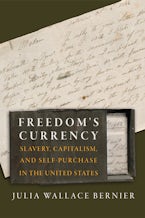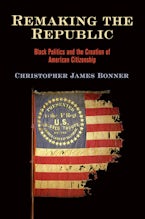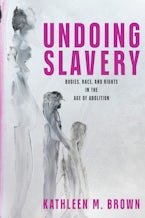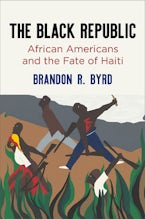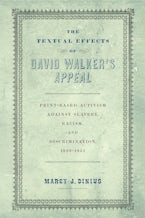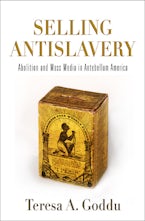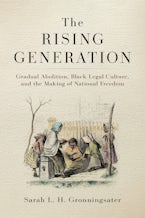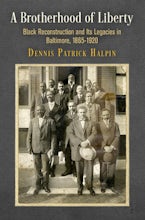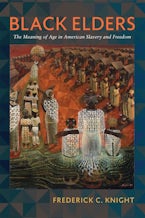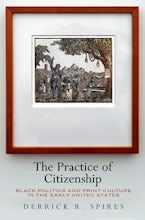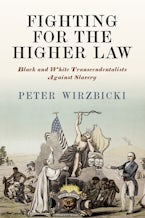Juneteenth is a holiday marking the anniversary of June 19, 1865—the date Major General Gordon Granger arrived in Galveston, Texas, and delivered General Order No. 3 announcing the end of legalized slavery in Texas. Since the following year and continuing to this day, it has been celebrated by people of African descent in the United States as a commemoration of the effective end of slavery in the United States. As the Library of Congress notes, Juneteenth is a “symbolic date” representing the African American struggle for freedom and equality as well as a celebration of family and community, and it is also celebrated by people in Canada, Jamaica, Nigeria, the United Kingdom, and other countries throughout the world.
In 1979, Texas became the first state to recognize Juneteenth as a state holiday, with many other states gradually following suit in the ensuing decades. On June 17, 2021, President Joseph R. Biden, Jr. signed into law the bill that established Juneteenth National Independence Day, June 19, as a federal holiday.
To honor Juneteenth, Penn Press has curated a collection of our recent and forthcoming titles that explore historical context and themes related to Juneteenth, which you can browse below.
Freedom's Currency
Julia Wallace Bernier
The first comprehensive study of self-purchase in the United States from the American Revolution to the Civil War, Freedom’s Currency reveals how enslaved people raised money, fostered connections, and made use of slavery’s systems of value and exchange to wrest control of their lives from those who owned them.
Remaking the Republic
Christopher James Bonner
Examining newpsapers, conventions, public protest meetings, and fugitive slave rescues, Christopher James Bonner highlights a spirited debate among African Americans in the nineteenth century, the stakes of which could determine their place in U.S. society and shape the terms of citizenship for all Americans.
Undoing Slavery
Kathleen M. Brown
Undoing Slavery excavates medical and legal history to understand the abolitionist focus on the body on its own terms. Facing many challenges to their goal of restoring embodied self-sovereignty to the enslaved, abolitionists learned that legal rights alone, while necessary, were not sufficient either to protect or heal the bodies of African-descended people from the consequences of slavery and racism.
The Black Republic
Brandon R. Byrd
The Black Republic explores the critical but overlooked place of Haiti in black thought in the post-Civil War era. Following emancipation, African American leaders considered Haiti a singular example of black self-governance whose fate was inextricably linked to that of African Americans demanding their own right to self-determination.
Force and Freedom
Kellie Carter Jackson
In Force and Freedom, Kellie Carter Jackson provides the first historical analysis exclusively focused on the tactical use of violence among antebellum black activists. Through tactical violence, argues Carter Jackson, abolitionist leaders created the conditions that necessitated the Civil War.
The Many Resurrections of Henry Box Brown
Martha Cutter
On March 23, 1849, Henry Brown climbed into a large wooden postal crate and was mailed from slavery in Richmond, Virginia, to freedom in Philadelphia, Pennsylvania. Martha J. Cutter shows how subversive performances were woven into Brown’s entire life and analyzes contemporary resurrections of Brown’s persona.
The Textual Effects of David Walker's "Appeal"
Marcy J. Dinius
In The Textual Effects of David Walker's "Appeal" Marcy J. Dinius offers the first in-depth analysis of Walker's argumentatively and typographically radical pamphlet and its direct influence on five Black and Indigenous activist authors, Maria W. Stewart, William Apess, William Paul Quinn, Henry Highland Garnet, and Paola Brown.
The Philadelphia Negro
W. E. B. Du Bois, Elijah Anderson, Isabel Eaton
The first example of engaged sociological scholarship, and one of a major American thinker’s earliest works, with a newly updated introduction by Elijah Anderson
Selling Antislavery
Teresa A. Goddu
Featuring more than 75 illustrations, Selling Antislavery offers a thorough case study of the role of reform movements in the rise of mass media and argues for abolition's central importance to the shaping of antebellum middle-class culture.
Revolutions and Reconstructions
Van Gosse, David Waldstreicher
Revolutions and Reconstructions gathers historians of the early republic, the Civil War era, and African American and political history to consider not whether African Americans participated in the politics of the long nineteenth century but how, when, and with what lasting effects.
The Rising Generation
Sarah L. H. Gronningsater
The Rising Generation chronicles the history of emancipation in the United States through the cradle-to-grave experiences of a remarkable generation of black northerners. It focuses on the efforts of the “children of gradual abolition,” who, as grown-ups, shaped national and state campaigns for legal equality and the end of slavery.
A Brotherhood of Liberty
Dennis Patrick Halpin
Dennis Patrick Halpin argues that Baltimore is key to understanding the trajectory of civil rights in the late nineteenth and early twentieth century. A Brotherhood of Liberty traces the civil rights victories scored by black Baltimoreans that inspired activists throughout the nation and subsequent generations.
Black Elders
Frederick Knight
Drawing on a wide array of printed and archival sources, Frederick C. Knight offers a unique window into the individual and collective lives of African Americans, the day-to-day struggles they waged around their experiences of aging, and how they drew upon these resources to define the meaning of family, community, and freedom.
The Strangers Book
Lloyd Pratt
The Strangers Book explores how a constellation of nineteenth-century African American writers radically reframed the terms of humanism by redefining what it meant to be a stranger.
I've Been Here All the While
Alaina E. Roberts
Perhaps no other symbol has more resonance in African American history than that of "40 acres and a mule"—the lost promise of Black reparations for slavery after the Civil War. In I've Been Here All the While, Alaina E. Roberts draws on archival research and family history to upend the traditional story of Reconstruction.
The Practice of Citizenship
Derrick R. Spires
The Practice of Citizenship traces the parallel development of early black print culture and legal and cultural understandings of U.S. citizenship. Considering a variety of texts by both canonical and lesser-known authors, Derrick R. Spires demonstrates how black writers articulated an expansive, practice-based theory of citizenship.
Fighting for the Higher Law
Peter Wirzbicki
In Fighting for the Higher Law, Peter Wirzbicki explores how important black abolitionists joined famous Transcendentalists to create a political philosophy that fired the radical struggle against American slavery.

